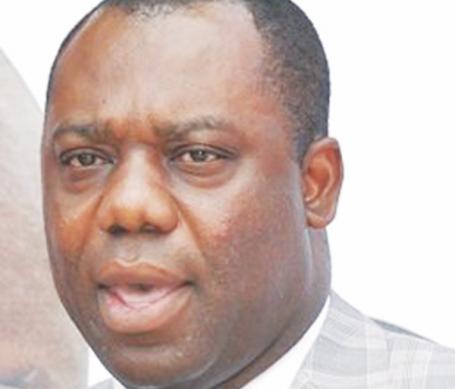GHANA’S EDUCATION Minister Matthew Opoku Prempeh has discussed the future of Ghana’s education system, following the launch of a free SHS programme in September 2017.
The SHS programme provides a free Senior High School education policy and implies the absorption of all approved fees currently charged to students in public SHS and TVET Institutions.
During its launch, Mr Prempeh explained that under the free SHS/TVET policy, Day students would benefit from a fully-sponsored scholarship package of GH₵ 648.47, while Boarders would benefit from GH₵ 1,002.47 annually in addition to free textbooks and other learning materials.
Speaking to The Voice, five months after its launch, Mr Prempeh discussed some of the key challenges faced whilst ushering in the impactful programme and impending plans to include free education across different age groups.
“We started this from lack of data and knowledge – we didn’t really know how the children were doing in school,” said Mr Prempeh. “So the launch of the SHS programme was really a turning point to make sure that there’s accountability and transparency and it took a lot of planning.
“It’s been very challenging, but it’s a process and hopefully we’ll finish the three year cyclone with a better and more accountable system.”
The programme aims to expand on making education free across Ghana, whilst encouraging students to further engage in areas which can lead to increased employment across Ghana’s most needed fields of work.
“Before, kids with talent were not necessarily supported in technology, immigration and vocational skills. So we work to emphasis the big push in vocational and technological jobs and we don’t want any child left behind because of lack of education after the lower high school, we want everybody to go into their chosen vocation.”
He added: “We had to restructure the whole of our technological vocational education, so that we get all the benefits we deserve out of it.”
Ultimately, Mr. Prempeh hopes this change will lead to free education across all key stages as a part of Ghana’s big education plan to turn the fortune’s of the nation around.
He said: “The plan has many different processes – one of which is to start with making secondary education free and making it a part of the basic education of Ghana. So the basic education is from kindergarten, primary, junior high school and senior high school.
“One of the big things we focus on is vocational and technical training and skills training, so that those who want to go to skills training will also be given the opportunity. So overall we want to prioritise; 1) making secondary education free, 2) including technical and vocational skills, 3) restructuring higher education to expand it and make sure there are more girls getting through higher education.”
“Its crucial that Ghana has better education in the country not just for high school but everywhere,” said Prempeh. “That is where I want to emphasise, that is where we have to grow the foundations.”


Comments Form